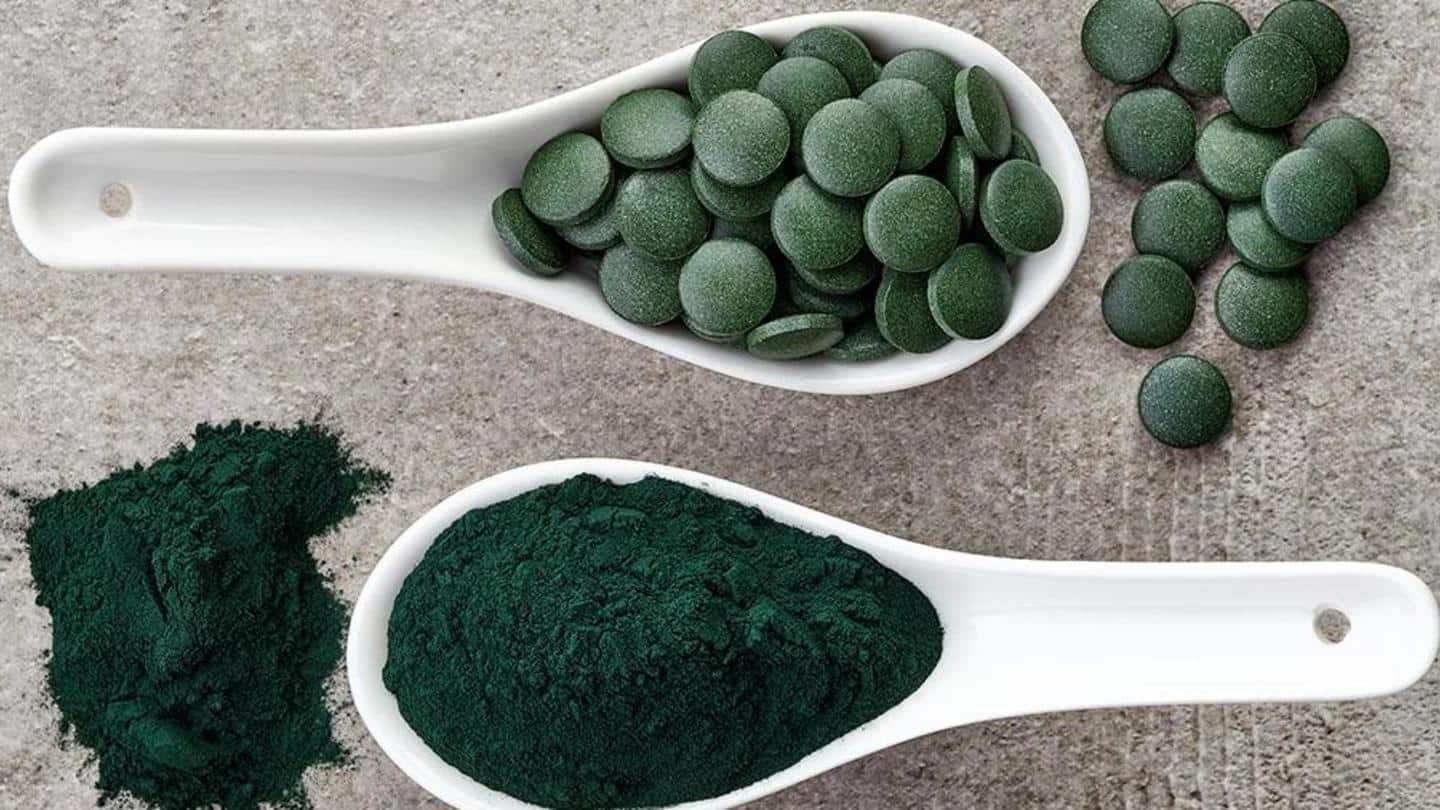
#HealthBytes: Health benefits of the popular algae supplement, spirulina
What's the story
Spirulina is a blue-green alga that has taken health and fitness by storm in recent years and this is not surprising considering its many benefits.
Spirulina is usually consumed in powder form or as a supplement and is considered an excellent source of protein and vitamins for vegans and vegetarians.
This article outlines the most important health benefits of adding spirulina to your diet.
Cholesterol
Prevents the oxidation of LDL cholesterol
Fatty parts in our body are more prone to oxidative damage, which leads to several diseases. This process is known as lipid peroxidation.
Spirulina contains antioxidants that are proven to be effective in reducing lipid peroxidation.
Supporting this fact, a study conducted on participants with type 2 diabetes proved that consuming 8 grams of spirulina every day helped in reducing markers of oxidative damage.
Allergic rhinitis
Reduces the symptoms of allergic rhinitis
Allergic rhinitis or hay fever is an allergic response to allergens like pollen, dust mites, mold, wheat dust, frequent headaches, etc. Symptoms usually include sneezing, an itchy nose, coughing, hives, and fatigue.
While the severity of the allergy varies from person to person, a study proves that spirulina can relieve several symptoms including runny nose, sneezing, nasal congestion, and itching.
Diabetes
Helps in controlling blood sugar levels
Laboratory studies on animals show spirulina can reduce sugar levels and are at par or better than traditional diabetes medicine like Metformin.
A study on type 2 diabetes patients, who consumed 2gm of spirulina daily, showed their HbA1c levels decreased from 9% to 8%. This is significant because scientists believe even a 1% reduction in this marker can lower diabetes-related death risk by 21%.
Cancer
Reduces the risk of oral cancer
Studies conducted on animals have shown that spirulina helps in reducing the occurrence of cancer and tumor size, too.
Another study conducted on participants with precancerous lesions in the mouth showed promising results. When the participants took 1gm of spirulina every day for a year, lesions in 45% of them had disappeared.
However, when they stopped taking it, almost half of them redeveloped lesions